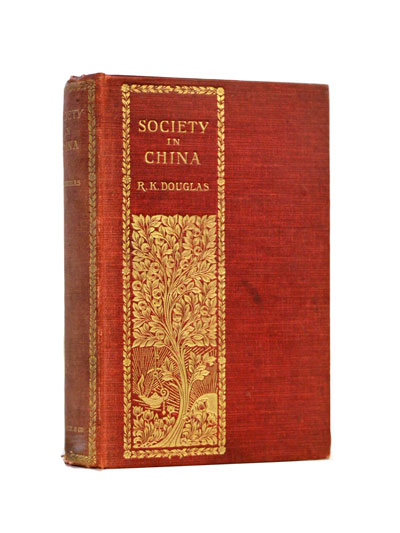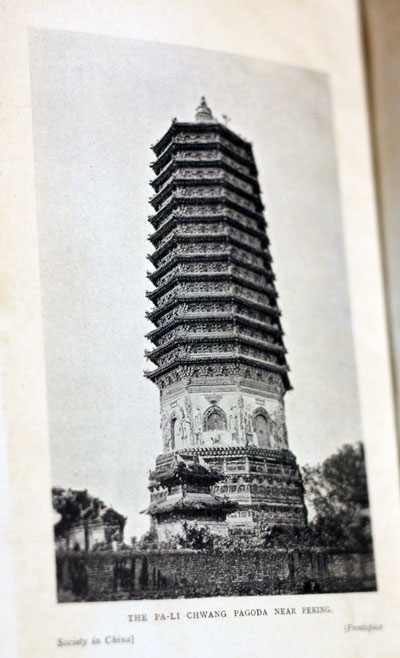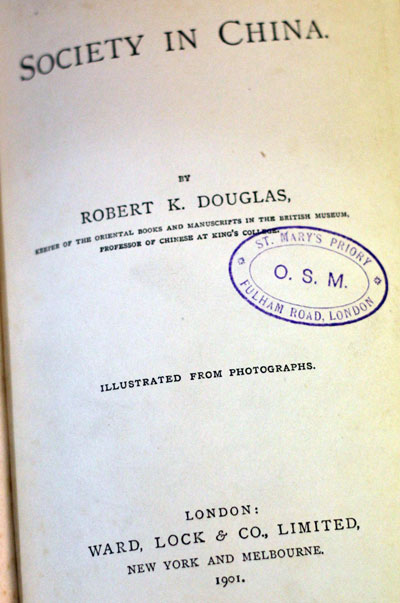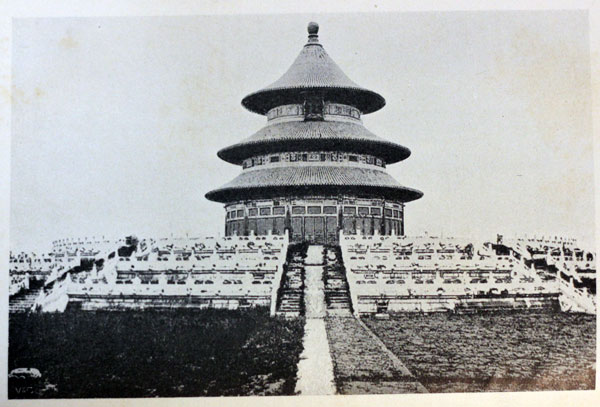An extremely important work on China by an expert, which had direct impact on Western policy towards China.
The writer, Sir Robert Kennaway Douglas (1838 – 1913) was vice president of the Royal Asiatic Society, and the first Keeper of the British Museum’s new Department of Oriental Printed Books and Manuscripts when it was created in 1892.
From the Preface:
The object of the present work is to picture the Chinese as they are, and not necessarily as they profess to be. There is no country in the world where practice and profession are more widely separated than in China. The empire is preeminently one of make-believe. From the emperor to the meanest of his subjects a system of high-
sounding pretension to lofty principles of morality holds sway ; while the life of the nation is in direct contradiction to these assumptions. No imperial edict is complete, and no official proclamation finds currency, without protestations in favour of all the virtues. And yet few courts are more devoid of truth and uprightness, and no magistracy is more corrupt, than those of the celestial empire.
In the following pages an attempt is made to follow the emperor from his throne to his everyday employments and amusements ; to attend the mandarins both on the bench and In their private lives; to associate with the merchants in their counting-houses and chambers of commerce ; to go with the mechanic into his workshop and the council-chamber of his trades-union ; and to accompany one and all into the temples of their gods.
For these purposes the pages of the oldest journal in the world, the Peking Gazette as well as the novels and plays of the people, have been largely drawn upon. With curious outspokenness the first of these authorities reflects the lives of the officials and people with faithful minuteness. The faults and shortcomings of the emperor, the crooked
ways and corruptions of the mandarins, and the crimes, superstitions, and follies of the people, are described in its pages with unfaltering directness.
In the novels and dramas we have, further, placed before us truthful representations of the lives and ideas of the people. It is from these native witnesses, therefore, that much of the present work has received its inspiration.
An experience of some years in the country has supplemented these sources of information, and Blue books have contributed largely towards the chapters on the foreign relations of the empire. At the present time, when affairs appear to be drifting towards anarchy, and when the negotiations for peace are impeded by the adroit, but underhand, policy of the Chinese Plenipotentiaries, it is well to take to heart the lessons which the last sixty years should have taught us. China is a long way off,
and our vast commercial interests in that empire are apt to be unduly minimized when viewed from the opposite end of the world. But if our trade is to be maintained and our treaty rights are to be observed, it will soon become necessary for us to take a far stronger line than we have lately adopted in our relations with the celestial empire. The
chapter on trade shows that our commerce in the far East is not what it was ; and this is the more important since signs are not wanting that there is a danger of a still further contraction, owing to the advance made by other nations, and the growing hostility of the Chinese Government.





